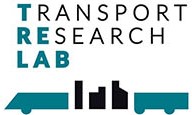Testing for nonlinearity in the choice of a freight transport service
Manufacturing firms buy transport services with the aim of minimizing their total logistics cost. There is a large amount of literature analyzing how shippers value the various characteristics of a transport service, mostly performed by collecting stated-preference data and estimating discrete choice models. Most of the empirical studies specify the deterministic part of the utility functions as linear in the observed attributes. This implicitly constrains the characteristics of the analyzed transport service to be perfect substitutes, and to have a constant substitutability ratio. Such an assumption is inconsistent with the standard microeconomic theory, typically assuming inputs’ decreasing marginal productivity, and may not be realistic. The paper tests the linearity assumption for freight rate, travel time, probability of having damaged and lost freight, frequency, flexibility, mode and punctuality on a sample of Italian small- and medium-sized manufacturing enterprises (SME). Our findings suggest that the linearity-in-the-attributes assumption should be rejected and that the marginal impact on the utility-of-profit of the attributes is not constant. More specifically travel time and freight rate produce decreasing marginal reductions of the utility-of-profit; while safety (percentage of not damaged or lost shipments) and punctuality (percentage of shipments on time) are responsible for increasing marginal contributions to the utility-of-profit. The substitutability ratios between (a) freight rate and loss and damage, (b) freight rate and travel time, (c) freight rate and punctuality, (d) travel time and damage and loss and (e) travel time and punctuality are estimated and found not constant. Finally, it is found that the willingness to pay for the qualitative attributes obtained with a linearly specified model tend to be overestimated.


